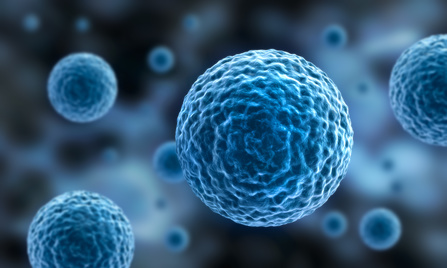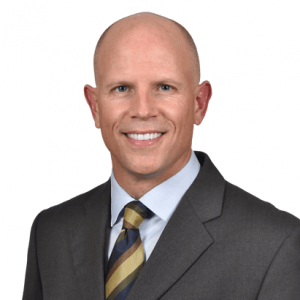What Are Stem Cells? Explained By Dr. Reuss

Stem cells are unlike any other cell in the body. They have the unusual ability to morph into practically any different cell type found throughout the human body. This unique ability allows them to repair and replace tissues in the body, becoming whatever types of cells needed to help restore and replenish old, tired, or damaged cells.
“A lot of patients ask me what stem cell treatment is,” says Bryan L. Reuss, M.D., a double board-certified orthopaedic surgeon specializing in sports medicine at Orlando Orthopaedic Center. “Stem cells are part of what we call regenerative medicine, which involves stem cell treatment as well as PRP or platelet-rich plasma.”
Throughout our lives, adult stem cells are what the body uses naturally to heal itself. However, with age, the joints have a more difficult time healing on their own from injuries and wear and tear. The plentiful amount of adult stem cells in the body can reinforce the body’s natural healing power.
What is Regenerative Medicine?
The roots of regenerative medicine can be traced back to the beginning of the 20th century. Regenerative medicine seeks to combine the power of stem cells with the body’s own regenerative capacity to recover and replenish the makeup and function of injured tissues and organs.
“Stem cells specifically are some of the initial precursors to our body’s formation,” says Dr. Reuss. “We can harness the energy of those stem cells to rebuild tissue such as cartilage, decrease inflammation and fight infection.”
The beauty of stem cell treatment is that it doesn’t rely on tissues from donors. In most cases, the patient’s own stem cells can be used in the treatment process to restore muscle, tendon or joint function.
How Does Autologous Stem Cell Treatment Work?
During the procedure, the surgeon will take a small amount of blood, usually from the bones in the hip or knee. The stem cells are separated and then re-injected or implanted into the injured joint, tendon, or another source of pain or inflammation in the body.
It is believed that when stem cells enter a damaged area, such as the knee, the hip, a tendon or ligament cartilage, they evolve into the exact type of cell that’s needed to induce and augment healing. The risk of rejection is minimal as the adult stem cells have been taken from the patient’s own body.
Some stem cell injections can be followed up after four to six weeks with a platelet-rich plasma (PRP) injection.
What are Platelet Rich Plasma (PRP) Injections?
Along with red and white blood cells, platelets are a vital component of our blood. Their most important function is to help in blood clotting, but they are also composed of many valuable proteins known as growth factors. When the body has been injured, growth factors assist and catalyze the healing process.
A platelet-rich plasma (PRP) injection contains a preparation of plasma with an increased concentration of platelets, up to ten times the normal level of growth factors found in the blood. A small amount of blood is taken from the patient and is then spun down in a centrifuge. The concentration of growth factors is then injected into the damaged area.
Although scientific evidence is currently lacking to confirm the long-term effectiveness of PRP, research studies, trials and real world examples have reported PRP to be an effective treatment for knee arthritis and chronic tendon injuries, particularly tennis elbow.
“Our goal is to advance medicine and get our patients back to their sports or activities by letting their bodies heal themselves,” says Dr. Reuss.
Is Stem Cell Treatment Right For You?
Stem cell treatment may be considered for certain patients living with chronic pain or inflammation where the use of conservative treatments such as rest, pain medication, physical therapy, or other injections have failed to alleviate the symptoms. In some cases, stem cell treatment can allow a patient to prolong or avoid the need for surgery altogether.
Ultimately consulting with one’s doctor is the first step in determining if stem cell treatment may be a viable option.


